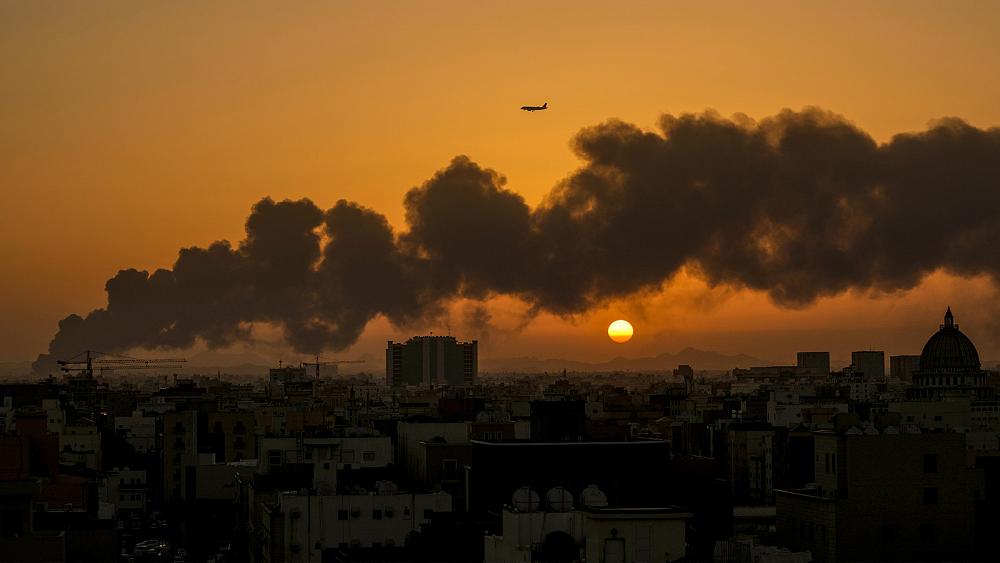
Pakistan and Afghanistan are sticking to their known standpoints on disputes in their complex bilateral relationship as violence directed at the civilian population, especially the minority Shia, spreads on both sides of the border.
Neither side accepts the Islamic State-Khorasan being behind this violence, indeed, its very presence, that is spreading deeply and extensively. While Kabul denies that its territory is being utilized by any external force to spread violence, the Foreign Office in Islamabad FO, in a statement, last week recalled that Pakistan had repeatedly requested the Afghan government over the last few months to secure the Pak-Afghan border region. “Terrorists are using Afghan soil with impunity to carry out activities inside Pakistan.”
In an editorial (April 23, 2022) Pakistan’s Dawn newspaper blamed the IS-K for violence in Kabul, Mazaar-e-Sharif and other places across Afghanistan, but also the Tehreek-e-Taliban Pakistan (TTP), Pakistan’s own rebels, for ‘ratcheting up” killings in North Waziristan and other places on the Pakistan side.
A measure of mutual distancing, even hardening of stand, is discernible in the diplomatic messages of greetings exchanged between Pakistan’s new Prime Minister Sheahbaz Sharif and Afghanistan’s Acting Prime Minister Mullah Mohammad Hassan Akhund. The latter has reiterated that Afghanistan is not sheltering any force that can cause problems for Pakistan and that dealing with the Tehreek-e-Taliban Pakistan (TTP) is Islamabad’s “internal matter.”
This tantamount to yet another rejection of Pakistan’s repeated pleas, even pressures that Kabul stop sheltering the TTP, whose cadres stage violent operations from the tribal areas on the Pak-Afghan border.
Akhund expressed the hope that bilateral ties will improve under Sharif in an allusion to the multiple problems faced with the previous government of Imran Khan. He called Sharif’s taking office as “a good and valuable step” that would benefit bilateral ties between two ‘brotherly’ neighbours.
He took a larger view of the bilateral ties that both have found problematic since the Taliban captured power in Afghanistan in August last year, assuring that “good and comprehensive relations between the two brotherly nations and the Muslim neighbouring countries would be further enhanced and strengthened.”
The message from Mullah Akhund “comes amid rising tensions between the two countries over a spike in attacks on Pakistan forces which Pakistan says are being conducted from inside Afghanistan by the outlawed TTP,” Dawn newspaper noted.
On receipt of Akhund’s message, the Pakistan Foreign Office said incidents along the Pak-Afghan border had significantly increased in the last few days, wherein Pakistani security forces were being targeted from across the border. The FO spokesman said Pakistan had repeatedly requested the Afghan Government in the last few months to secure the Pak-Afghan border region and that terrorists were using Afghan soil with impunity to carry out activities inside Pakistan.
Kabul has rejected the Pakistani charge that terrorists were using Afghanistan soil against Pakistan through a Taliban commentary posted on Afghanistan’s official news agency Bakhtar.
The Taliban commentary said the “Islamic Emirate of Afghanistan rejects Pakistan’s claim and has repeatedly called on Pakistan to resolve any problems and misunderstandings through constructive dialogue to ensure greater security in the region.”
“Although the dilemma between the TTP and the Pakistani government is an internal matter, the IEA wants a healthy solution that benefits both the region and the people of Pakistan,” it further said.
Meanwhile, a weary Islamabad, taking cue from an aggressive United States and the world community, has for the first time pressed Kabul’s Taliban rulers to let their girls go to school.
Prominent Pakistani religious scholar Mufti Taqi Usmani has, in a letter addressed to Taliban chief Haibatullah Akhundzada, asked that girls’ schools be reopened. The significance lies in Pakistan using an ‘unofficial’ channel to address the Taliban supremo directly.
Usmani, Vice president of Darul Uloom Karachi and highly regarded among the Taliban, has said: “Girls’ education is currently an important issue which the enemy of the Islamic Emirate has used as a propaganda tool. We value the wise and wholehearted measures which the Islamic Emirate has taken so far. But we are of the view that it is necessary to make appropriate arrangements for girls’ education in accordance with Sharia,” Mufti Usmani.
The Taliban have by and large disregarded the demand for girls’ education and say nothing on the pleas for making their government ‘inclusive’ to include women and ethnic minorities. Analysts say this stance is unlikely to change. (Ends)






